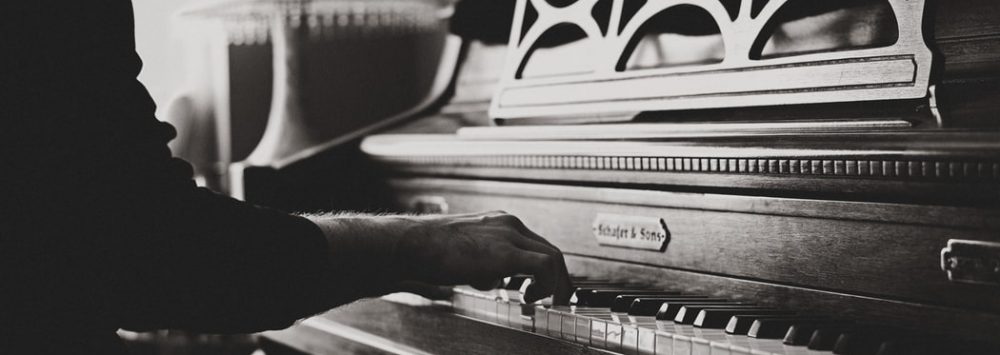by Farshad Askari
This story is part of our blog series called “Stories from the OCD Community.” Stories from the community are submitted and edited by Toni Palombi. If you are interested in sharing your story you can view submission details at www.iocdf.org/ocd-stories.
Saying it feels odd to reminisce about being a patient in a psychiatric hospital is an understatement. I was a patient at an obsessive compulsive disorder (OCD) clinic in Boston. The prospect of entering a psychiatric hospital was incredibly daunting, but after years of mental anguish from compulsions to engage in odd behavior, I desperately wanted normalcy. I wanted relief from constant anxiety and feeling overwhelmed and panic ridden by irrational fears. I wanted to curb the steadfast disintegration of my relationships with family, friends, and colleagues and end the burden I imposed on them for enduring my intensifying degeneration. I wanted to halt my growing isolation and avoidance of ever more items, people, and places my OCD deemed “contaminated.” I wanted to be rescued from a seemingly endless misery.
There’s always been stigma attached to mental health struggles, so inevitably some of that became internalized. I dreaded judgement from others, but how I felt about myself was worse.
The hospital’s grounds were beautifully designed by landscape architect Frederick Law Olmstead (later a patient himself). The residential buildings resemble New England mansions covered with ivy. Like Olmstead, many creative minds resided at the hospital. Famed MIT mathematician and Nobel Prize Laureate John Forbes Nash received treatment at the same time as Pulitzer Prize-winning poet Robert Lowell. Sylvia Plath wrote The Bell Jar borrowing from her time there while Ray Charles and James Taylor wrote popular songs about their stays.
I hoped that the hospital’s setting and storied past would enable a self-delusion that I’d just be sojourning for a few weeks at a “special” country club.
However, after my arrival, I found it lacked the pretentious elitism my country club reverie required. Inside the historical structure was an austere, drab institution. The common areas and bedrooms were bleak. The dorm-like bathrooms were locked. One had to notify staff if one needed access to basic amenities such as soap and toilet paper. It was a shock that forced me to acknowledge why I was really there -— not to vacation, but to get better.
Meeting the other patients gave me encouragement and hope to do just that: to heal.
The patients were kind, smart, and skilled. One taught me how to play the piano. Another gave me a beautiful sketched portrait. Indeed, aside from me and a few other lackluster patients (apparently “frantic hand washing” and “freezing in fear” aren’t too dazzling), the hospital is still an unexpected destination for impressive talent. Yet, no one was there for their gifts but what felt to be a cruel curse. My time there was incomparably the hardest work I’ve ever done and the most rewarding, important personal investment I’ve ever made. The days were filled with cognitive behavioral therapy involving grueling exposure and response-prevention exercises, and occasional hushed crying at night.
Despite this sense of immense achievement and gratitude for the tools to live a functional, happy life again, I rarely spoke about the experience as each time I mentioned it, I often encountered awkward responses. So, I kept my stay a guarded secret in fear of being judged.
The age of social media has yielded an extraordinary amount of opinion on mental health. Conjecture and analysis can be found that is too often comprised of armchair psychology and layman’s assessments. The assumptions and trite commentary helped me realize the mental health conversation must be had openly and honestly. If more of us who’ve dealt with OCD share our stories, perhaps the misinformation and stigma will diminish.
The patients I met at the clinic were all exceptional and ordinary, hyper-aware, decent people who sought help discerning why their own mind was the source of an incommunicable torment. They included a professor, a devoted mother, a music prodigy, a decorated veteran, a retired postman, an affluent businessman, an art student, a nurse, and an attorney.
I choose to no longer hide so others can see that people living with OCD come from all walks of life. Increased visibility yields commonality and those suffering need not feel isolated in their pain. Most importantly, with less undue stigma and increased awareness, people in need of help will be more inclined to seek the treatment they deserve. There’s no shame in needing help. There’s no shame in wanting to get better. Everyone has a struggle. That’s what makes us human, and me a regular person.
Farshad Askari lives in Los Angeles, needs coffee in the morning, adores his dog, and writes a blog called The OCD Memoirist . He can be found on Twitter at farshaskari and Instagram at farshaskari .


Thank you, Farshad, for sharing your story. I love how you pointed out that OCD affects those from all walks of life and backgrounds. Thank you for sharing your struggles and triumphs on your journey of healing. Take care!
Brittany